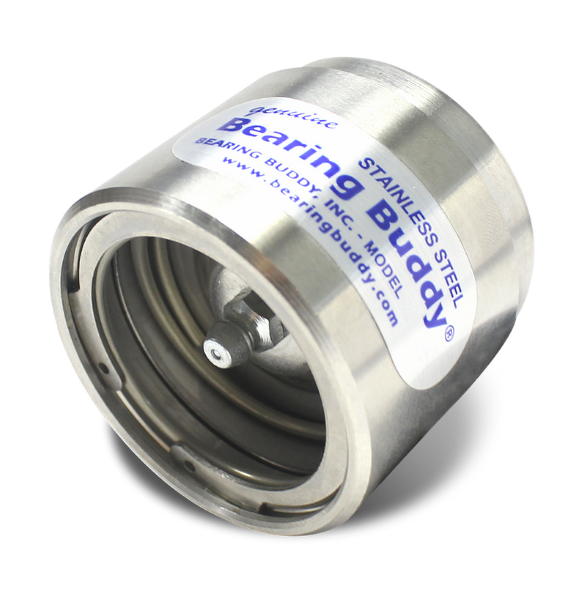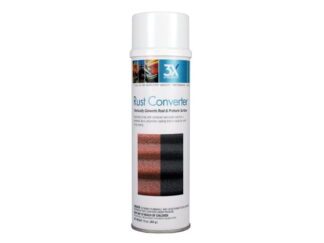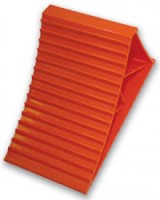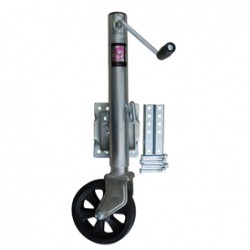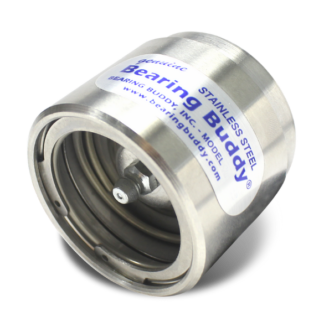Description
WHY TRAILERS NEED BEARING PROTECTION
Boat Trailers
Trailering, even a short distance, heats the hubs. When the wheels are submerged during launching, the hubs suddenly cool and the air inside the unprotected hubs contracts, forming a vacuum which draws in water through the rear seals. There is no such thing as a rotating seal that stays perfect. Water and grit thus drawn into the hubs relentlessly destroy bearings. When properly installed and maintained, Bearing Buddy® prevents wheel bearing failure and eliminates bearing repacking. Boat trailer wheels can be completely submerged.
Utility Equipment, ATV, Horse, Camping, and other occasional use trailers
These trailers, because they are not used regularly, are also subject to bearing corrosion and failure from condensation moisture from air sucked into hot hubs as they cool. Moisture stays in the hubs causing rust and pitting until they are reheated when the trailer is used again.
BEARING BUDDY® VS. OIL BATH
Some trailer manufacturers are offering an oil bath system as an alternative to a standard bearing protector, such as Bearing Buddy®. They claim that since long haul trucks use this system it must be a superior system to a grease packed hub. What they fail to recognize is that America’s highways are the perfect environment and application, as the constant miles and tire rotation keeps the bearings well lubricated. Boat trailers, however, operate in a completely different environment. The hubs on a trailer can heat up during long trips and when they are dipped into cool lake water, the sudden temperature change creates a vacuum inside the hub. This vacuum will draw any condensation, moisture, or impurities directly into the bearings, which can cause premature bearing failure. Standard bearing protectors, such as Bearing Buddy®, make it easy to visually check the amount of grease inside grease packed hubs. The internal spring piston exerts about 3 p.s.i. against the grease to ensure that no water enters the hub when the hub is submerged during loading and unloading. When properly maintained, there are no voids inside the hub where condensation can form during winter storage. By comparison, oil bath hubs should be checked after every loading/unloading cycle to make sure water has not penetrated and diluted the oil. Small leaks can cause the oil to escape and once this happens, bearing failure is quick and complete within a few miles. Most oil bath hubs are only half filled with oil and must be carefully inspected to maintain the proper level. Too much or too little oil could cause problems. If a Bearing Buddy® is knocked off, it would still be possible to run for many miles without bearing failure. This would not be possible with an oil bath. Bearing failure would occur within a few miles.
